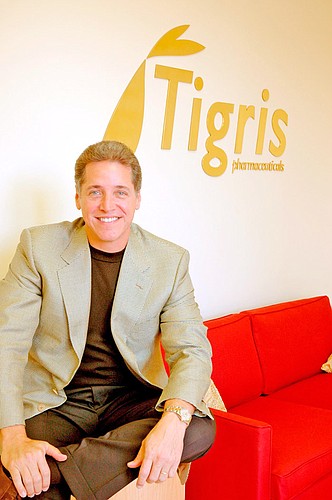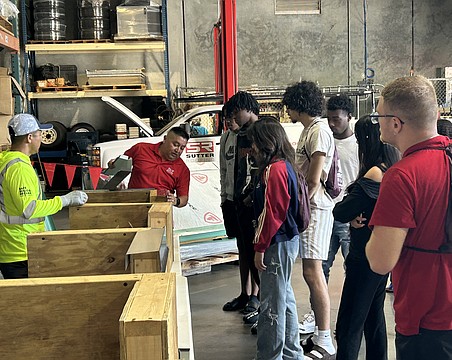Edmundo Muniz isn't worried about the prospects for bigger government involvement in drug pricing. The government will pay for performance, says the chief executive of Tigris Pharmaceuticals.
As the country edges toward nationalization of health care, you might think Edmundo Muniz would be concerned.
After all, his company, Tigris Pharmaceuticals in Bonita Springs, is working on several cancer drugs that could be extremely lucrative. For example, its lead drug could one day hit $1.5 billion in annual sales if it's successful.
But Muniz, the president and chief executive officer of Tigris, and his team of former Eli Lilly executives say their business model won't be affected by any potential price controls on drugs. That's because Tigris is working on drugs that are custom-made for a very specific cancer or subset of cancer patients. For example, one drug is designed for a particularly virulent strain of breast cancer.
If these custom-made drugs prove to be successful in clinical trials, Muniz says, “payers will pay for performance” regardless of whether it's the government, an insurance company or an individual.
The beauty of such custom drugs is that they're less expensive and faster to bring to market than huge blockbuster drugs. That's because clinical trials don't need to be as big when you're targeting smaller, niche populations.
Muniz says it can take a decade and $800 million to commercialize a big blockbuster drug, whereas a tailored drug like the ones he's working on cost half as much and take half the time to bring to market.
Speed is essential. Patent protection typically lasts 20 years, so cutting development time in half gives drug makers more time for exclusivity. “The cost of drug development for big pharma is unsustainable,” Muniz says.
In 1995, big drug companies spent $15 billion in research and the government approved 30 new drugs. In 2006, the same drug companies spent $50 billion but the government only approved 20 drugs. “If I led a business like this, I would be
very worried,” Muniz says. “That's what's driving consolidation.”
This drive for efficiency is even more pressing because of the possibility that the government may impose price controls on drugs. Muniz says large blockbuster drugs are often inefficient against certain varieties of diseases, such as cancer.
So Muniz reasons that if Tigris can develop narrowly focused but more successful drugs against certain hard-to-treat strains of cancers, even the government will pay top dollar for these custom drugs.
And that will make Tigris' drugs even more valuable because large drug companies will need to acquire those drugs to keep growing revenues and profits. A worsening economy actually helps because drug companies get more desperate.
“The worse the market is, the more they need it,” Muniz says.
But to get the drugs to the level that would interest big pharmaceutical companies takes money. So far, Muniz successfully raised $27.5 million from private investors in two rounds of financing and landed a $2.5-million grant from the National Cancer Institute.
To take the molecules Tigris is currently working on to the next trial phase, Muniz is going to start raising an undisclosed amount of money in a third round starting this summer.
Muniz says he's not overly concerned about Tigris' ability to obtain financing in these tough financial markets. “The problem is not that there's no money. It's just sitting on the sidelines,” he says. “There is a lot of money out there.”
Muniz ticks off Tigris' strengths: a strong management team with years of experience at Eli Lilly, it has enough cash for a year of operations and its drug molecules are promising. “You only raise money when you don't need money,” he says.






